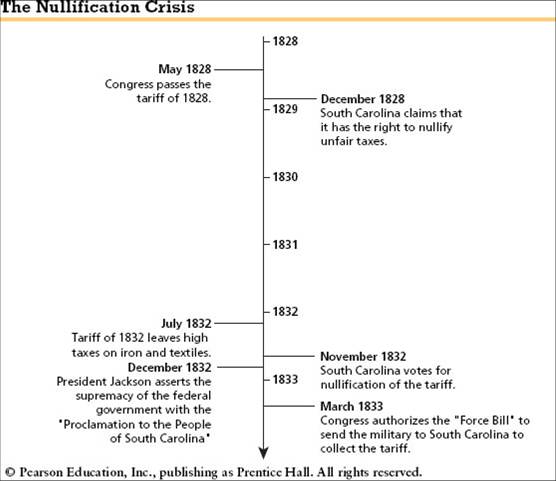|
|
Edited from U.S. History Review Text by Paul M. Roberts, p. 158. In 1828, while Adams was President, Congress imposed a stiff tariff on imports. Southerners, who relied on such imports, found this repugnant because it increased the costs of manufactured goods they had to buy, and argued that the Federal Government was simply increasing the profits of Northern businesseses at the expense of Southern farmers. Southerners called this a "tariff of abominations." Objecting to this, and a subsequent 1832 protectionist tariff which did lower rates, the South Carolina Legislature adopted an Ordinance of Nullification which declared the laws inoperative and prohibited officials from collecting the funds. They added that if such attempts were made, that the state would leave the Union. President Jackson sent South Carolina a firm message asserting that no state may disobey the laws of the land nor secede. He was prepared to use military means to get his point across but the Great Compromiser, Henry Clay, then a US Senator, was able to forge a deal (The Compromise Tariff of 1833) that gradually lowered the tariff over ten years. This process preserved the supremacy of the Federal Government over the states, but was representative of anger within parts of the American Government that would not subside.
|
||||||||||||||

